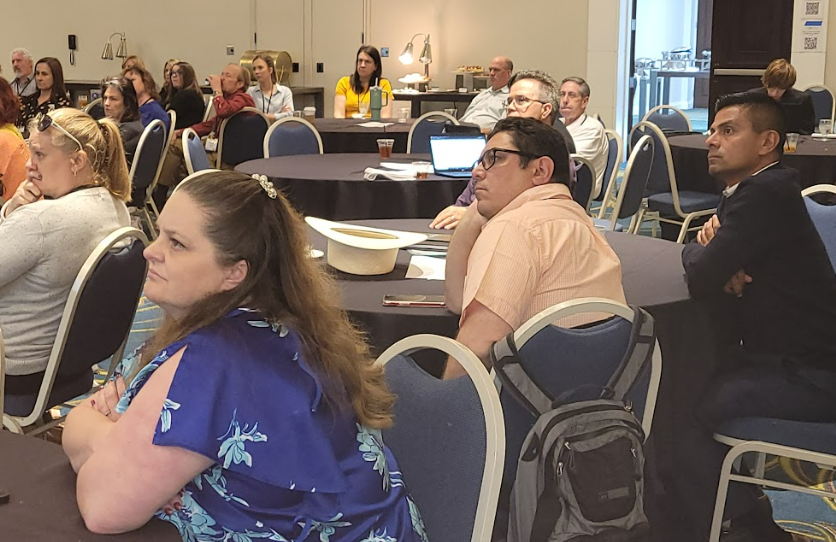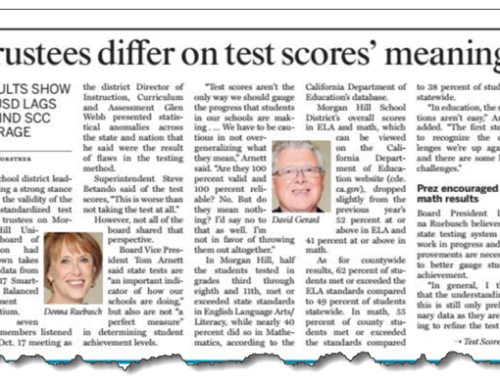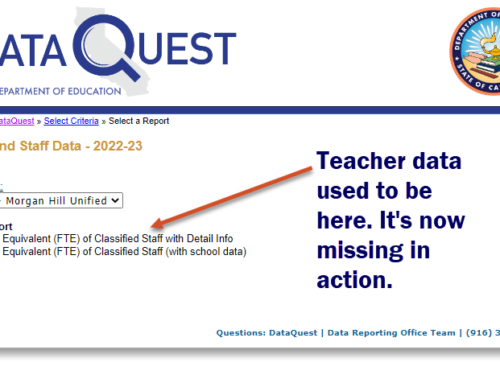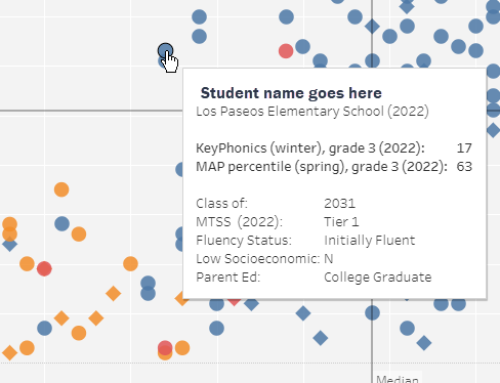 I’m back from the desert of Palm Springs, where I had the pleasure in mid-June to address the annual conference of the California Charter Authorizing Professionals (CCAP), and listen to the authorizers discuss their work. Many see themselves as school improvement leaders, who are really in the continuous improvement business. Like doctors, they aim to help their schools to prosper. One authorizer said she is guided by the ethos of doctors, the Hippocratic Oath, to “do no harm.”
I’m back from the desert of Palm Springs, where I had the pleasure in mid-June to address the annual conference of the California Charter Authorizing Professionals (CCAP), and listen to the authorizers discuss their work. Many see themselves as school improvement leaders, who are really in the continuous improvement business. Like doctors, they aim to help their schools to prosper. One authorizer said she is guided by the ethos of doctors, the Hippocratic Oath, to “do no harm.”
But it’s hard to do no harm when you’re handed badly built evidence by the CDE. Many of the authorizers I met would like to put the Dashboard at arms’ length. But they’re ordered to use it. And in that lies the authorizers’ dilemma.
I delivered a keynote speech on the topic of evidence quality. Specifically, how to distinguish good evidence from the bad, and the bad from the ugly. This invitation came about because the book I co-authored with Jill Wynns, Mismeasuring Schools’ Vital Signs, was well matched to the challenges these authorizers have faced:
- How to measure growth in learning (more specifically, the lack of growth).
- How to know when the pace of reclassification of ELs is way too slow.
- How to determine when the grad rate of a high school signals trouble.

Authorizers attending the California Charter Authorizing Professionals conference in Palm Springs. June 15, 2023. Photo by Kathryn Baron, courtesy of CCAP.
I also heard some authorizers express delight at the State Board of Education’s May decision to approve 23 assessments they can turn to for higher quality evidence than the Dashboard’s twisted interpretation of the CAASPP results offers. But I also heard other authorizers wonder how they’re going to learn to make proper sense of those 23 assessments’ report packages. Hey, if car mechanics today have to learn to service hybrids, electric and internal combustion engines, why can’t authorizers learn to interpret a half dozen of those assessments, especially if they are the key measures of learning progress embraced by the charter schools they authorized?
The Dashboard starts with CAASPP data — raw material that is sound. But then the CDE team headed by Cindy Kazanis bends the CAASPP results through the Dashboard, twisting them through a series of illogical rules, then expressing them not in numbers but in colors. Then the CDE higher-ups require authorizers and LCAP teams to use the Dashboard’s findings as if they were infallible, beyond question. If the meaning of the Bible has been subject to stormy debate for two thousand years, certainly the CDE’s Dashboard should be subject to questioning.
Indeed, many have already questioned The Dashboard. One notable critic is Paul Warren, who from 1999 to 2003 ran the division of the CDE now headed by Cindy Kazanis. In a policy paper Warren wrote in June 2018 while a researcher for the Public Policy Institute of California, he said, “Unfortunately, our analysis shows that using CDE group data to calculate growth estimates [from CAASPP] for most subgroups of students produces inaccurate measures.”
Another critic, Morgan Polikoff, associate professor at USC’s Rossier Graduate School of Education, wrote to the State Board of Education in 2018, questioning the CDE’s proposals for measuring growth, which would become the heart of The Dashboard. In that letter, co-signed by other scholars, he wrote: “The state’s current ‘change’ model is unacceptable – it profoundly fails the validity test, and therefore it does not accurately represent schools’ contribution to student achievement. Indeed, it is not clear what it represents at all.”
Perhaps the CDE is simply maintaining a long California tradition of proudful ignorance, certain like the Know-Nothing Party of the mid-1850s that their ideas are based on sound theories, their methods beyond reproach, and since they are blessed with the mark of officialdom, must be correct. This to me is hubris. But it is also an abuse of authority that I hope soon meets with legal challenges. Perhaps only outside the castle of K-12 in Sacramento will The Dashboard get the rational review it deserves. I can only hope that the judge who presides over that trial is wise enough to summon the guidance of James W. Popham, Morgan Polikoff or Paul Warren.






